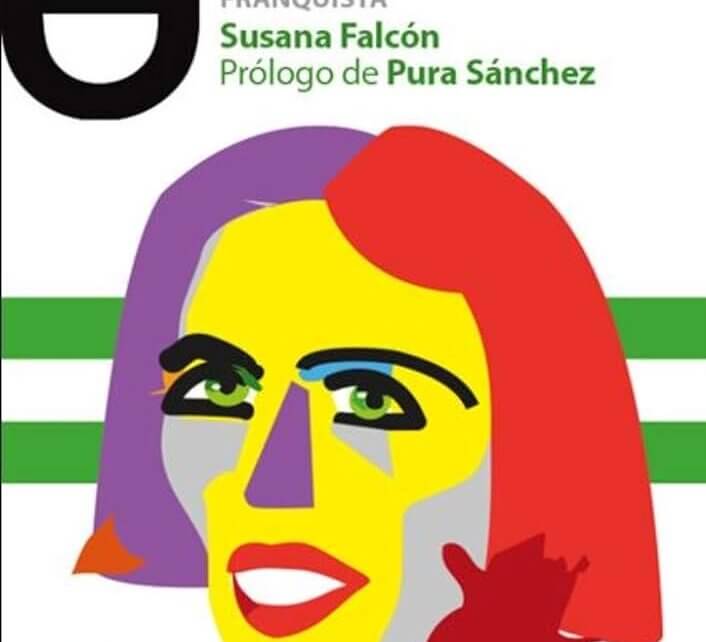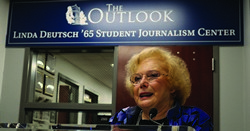The Department of World Languages and Cultures celebrated this Women’s History Month by hosting a bilingual poetry reading on Tuesday, Mar. 5 at 4:30 p.m. at the Intercultural Center in Magill Commons Dining Hall. The event will contain the works of poet, journalist, and activist Susana Falcón.
Falcón has written about human and civil rights issues throughout Argentina, Central America, and Spain. Falcón is set to present some poems from her latest book about the femicide, a term for the hate crime of systematically killing women, girls, or females in general because of their gender and/or sex, that happened during the Spanish Civil War under the dictatorship of General Fransico Franco to those who spoke out against the neo-absolutist regime that occurred at the time.
Falcón’s book, “100 Mujeres Andaluzas: Retrato del Feminicidio Franquista,” which translates to “100 Andalusian Women: A Portrait of Franco’s Femicide,” came out in December 2019. Since then, Falcón has come out with another book titled “La Niña de la Chaqueta Roja,” which translates to “The Girl in the Red Jacket,” in 2022.
Historian and book author, Pura Sanchez, when talking about Falcón’s poetry book has said, “To open this book is to initiate a flight towards the light, an attempt to illuminate the lives of a hundred anonymous andalusian women, left on the margins of history. They are testimonies that, in your hands, reader, in your eyes, reader, will find their Raison D’Être (reason for being): their rescue from oblivion.”
Falcón, in addition to being a poet, author, and journalist, is also the daughter of Jorge Falcón. Jorge Falcón was known as a prestigious and innovative film and television scriptwriter in Argentina in the 1960s. He was mostly known for his work in the written press, radio, and television in Argentina, Nicaragua, and Spain, as well as being a correspondent in Region VI (Matagalpa and Jinotega) during the war in Nicaragua.
Now, following in her father’s footsteps, Falcón has written about what she thinks is an important lesson that people need to be educated on. “My intention has been to rescue them from that impenetrable oblivion of so many decades, of so much silence and of so much impunity,” said Falcón. “The motive and intention of ‘100 Mujeres Andaluzas: Retrato del Feminicidio Franquista’ is to generate a reflection on what the brutal repression that occurred in the Spanish State in general and in Andalusia in particular after July 18, 1936, meant. Show the lives of the women who had to endure that repression in its different modalities, many of them lost their lives, and bring them to the present day. Take them out of oblivion and from that tangle, that terrible litter of impunity and make them shine with their own light, like the women they were, with the life they had and with how many of them tried to change the world,” she continued.
This event, though hosted by the Department of World Languages, was also supported by the Intercultural Center, the Department of English, the Department of Communication, the “Monmouth Review,” and The Program of Gender and Intersectionality Studies.
The poetry was initially read in Spanish by Falcón, and then translated into English by the Advanced Spanish Literature class taught by Alison Maginn, Ph.D., Professor of Spanish. “They (her students) are really enjoying the process and the challenge,” said Maginn.
The book, even though only a few years old, had been in the making for many years prior to being written and published. “I decided that I wanted to write something about retaliated women and a colleague gave me some information about a group of women, five or six, and from there I began a small search,” Falcón said when talking about her writing process. “Upon seeing the impact that these stories had on those who heard these texts, those stories of real women, of flesh and blood, subjected to that repression that they had to endure and that cost many their lives, I decided to write a book and expand from 12 to a few more.”
Though the event means a lot to those who are bilingual and those who are interested in history, the point is to highlight Falcón’s achievements both as a woman and for the betterment of women. “I wanted to tell everything. That, bringing them closer to their identity as people, as human beings whose lives were erased by the wind of repression, ruined forever,” said Falcón.
Events like these attract many people, but those it means the most to, are the bilingual students here at Monmouth, who are happy to see themselves represented at events. Music industry sophomore Olivia Crocco is bilingual and concluded, “Language is so important to people in America in my opinion because it keeps the connection to one’s family ancestry and where you came from.”



